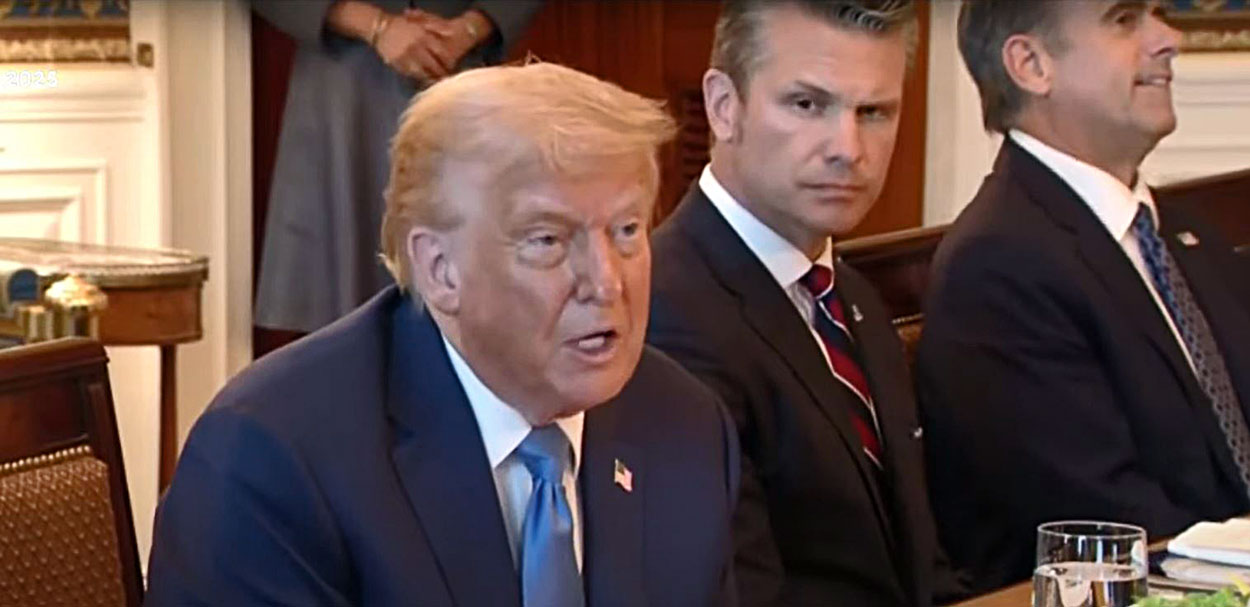The Wall Street Journal reports that US President Donald Trump has approved the provision of intelligence to assist Ukraine in conducting missile strikes deep inside Russian territory. Meanwhile, the US administration is weighing whether to send powerful American-made long-range weapons to Kyiv, marking a potential turning point in Washington’s approach to Russia’s war in Ukraine.
Trump reportedly authorizes intelligence support for strikes deep into Russia
WSJ says that for the first time, the Trump administration has cleared US intelligence agencies and the Pentagon to help Ukraine target energy infrastructure far beyond its borders. Officials told the Wall Street Journal that Kyiv will receive data to hit oil refineries, pipelines, and power stations deep within Russia, aiming to deprive the Kremlin of fuel and revenue used to sustain the invasion.
The move signals a shift away from previous restrictions on long-range coordination. US officials are also pushing North Atlantic Treaty Organization allies to offer similar assistance, according to WSJ.
One American official said agencies await final written guidance from the White House before releasing the necessary data. A Defense Intelligence Agency spokesman said he could not comment on active operations, and a Central Intelligence Agency spokeswoman declined to comment.
Administration debates powerful missile transfers
Alongside the intelligence support, the White House is also reviewing whether to provide Kyiv with Tomahawk and Barracuda missiles—ground- and air-launched weapons with ranges of approximately 500 miles (ca. 805 km). According to administration officials, no final decision has been made regarding the delivery of these systems.
Ukrainian President Volodymyr Zelenskyy revealed last week that he had personally asked Trump to supply Tomahawks. Vice President JD Vance confirmed during an appearance on Fox News on Sunday that the request is under consideration.
The Trump administration has already approved the sale of Extended Range Attack Munitions to Ukraine, with ranges between 150 and 280 miles (ca. 241 and 451 km). Tomahawk cruise missiles, among the most precise in the US arsenal, can reach up to 1,500 miles (ca. 2,414 km).
European officials have welcomed the potential expansion in US support. Germany has invested roughly $350 million into developing Ukraine’s domestic production capacity for deep-strike systems.
ATACMS still restricted under Trump’s policy
Despite the current shift, certain restrictions remain. The Trump administration has continued to block new deliveries of Army Tactical Missile Systems (ATACMS), which had previously been approved under the Biden administration. These weapons, capable of striking targets up to 190 miles (ca. 306 km) away, have not been used inside Russia since late spring.
The Pentagon has required Ukrainian forces to request approval for each intended use of ATACMS. In at least one documented case, a request to strike a target on Russian soil was denied, WSJ says.
Read also
-
From Kinzhal missiles to Shaheds: Ukraine destroys 10,215 Russian targets in September, proving it is Europe’s frontline defense
-
Tomahawk deal with Ukraine? Vance confirms active White House discussions during Fox News appearance
-
NYP op-ed: “Moscow keeps offering the same choice: act or fold” — and NATO keeps folding




